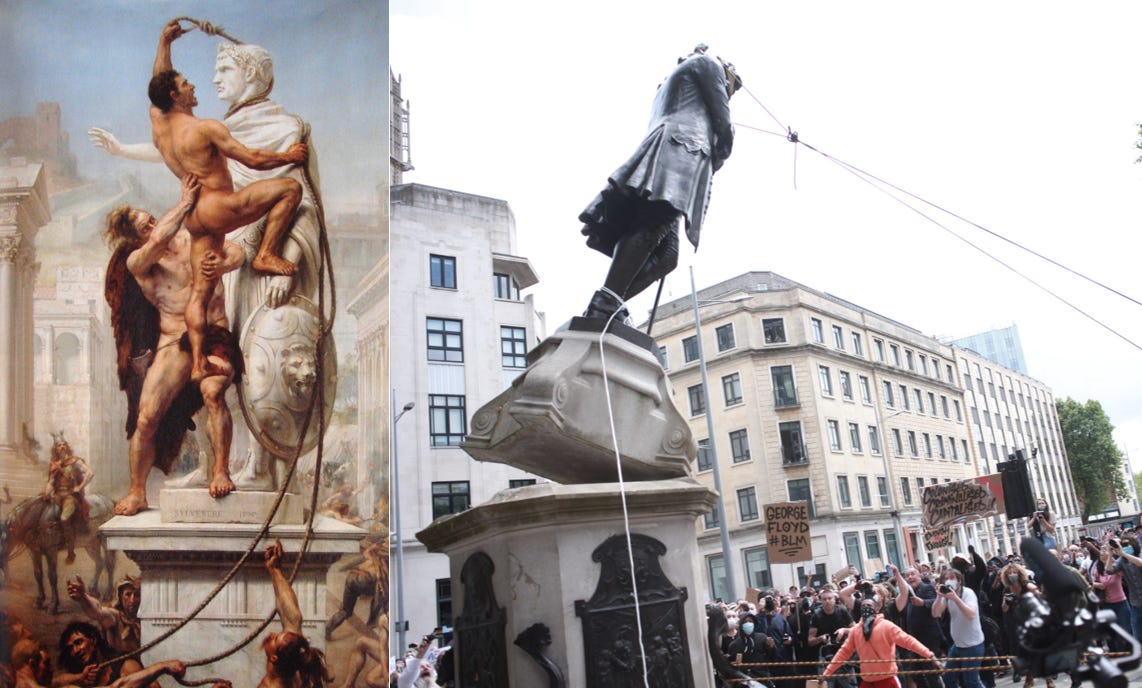
In an age where change barrels toward us like a digital freight train, have you ever paused to wonder why the bedrock of our societies, you know, those time-honoured traditional values like meritocracy, personal responsibility, limited government, the strong nuclear family, faith and religion, patriotism, personal freedoms, and respect for authority, to mention a few, seem to be crumbling before our eyes?
It's a question that keeps me up at night. And it is not only because I am a father raising a son in this hyperconnected world, but also because I have spent years delving into history and our origins.
You should know by now that I do not shy away from these tough conversations, even if it costs me in business, friends, and... banks closing my accounts or mainstream media refusing interviews. Instead, I seek truth by blending ancient wisdom with modern scrutiny.
So, today, let's explore why these traditional values feel under siege, why they're vital to a healthy society, and the forces, both overt and subtle, driving the attacks. As usual, we'll draw from the past to understand the present, speculate on hidden motives, and chart a way forward.
What Do We Mean by "Traditional Values," Anyway?
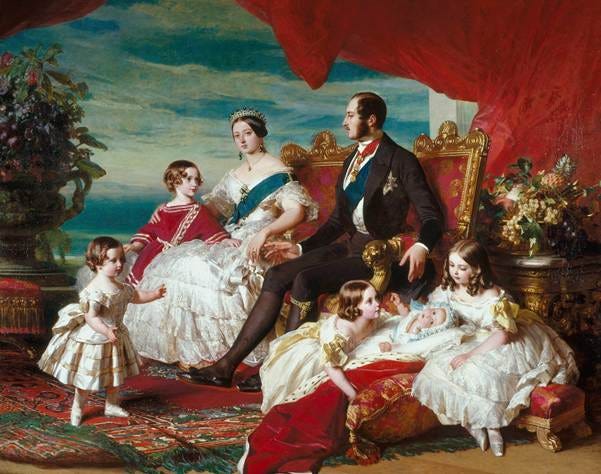
First off, let's clarify what we're talking about, shall we?
For many traditional values are just a dusty relic from a bygone era. But for others (including me), they're the glue that has held human societies together for millennia.
So what do they include?
Meritocracy: Rewarding hard work, talent, and achievement over connections or handouts.
Personal Responsibility: Owning your actions, providing for yourself and your loved ones, and contributing to society.
Limited Government: A government that protects rights without overreaching into personal lives, emphasizing checks and balances.
Strong Nuclear Family: The foundational unit of parents and children, advancing stability, love, and moral guidance.
Faith and Religion: Spiritual anchors that provide purpose, ethics, and community.
Patriotism: Love for one's country, its history, and its ideals, inspiring unity and sacrifice.
Personal Freedoms: The right to speak, think, and live as you choose, without undue interference.
Respect for Authority: Honouring leaders, laws, and institutions that maintain order and justice.
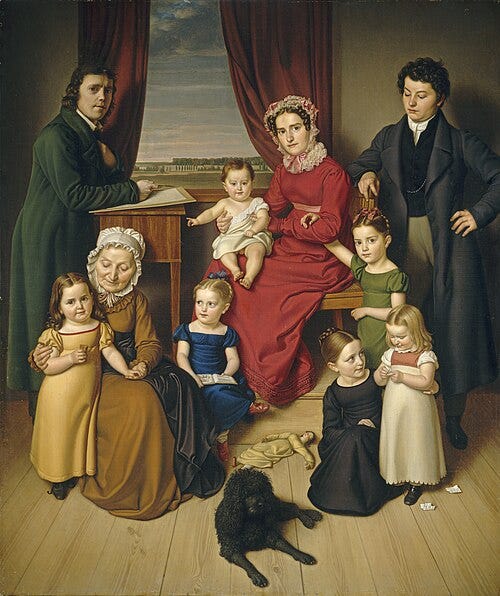
For me, these are frameworks that have passed the test of time and not dogma. Frameworks that promote ethics, resilience, and prosperity. I've witnessed this firsthand in my lectures and explorations: young minds, bombarded by algorithms, prioritize viral fame over these enduring principles. And no, I am not insulting the youth. Far from it. I am just criticizing the systems shaping them.
These values are important because they build strong individuals and communities.
Meritocracy drives innovation and fairness, ensuring the best rise to the top.
Personal responsibility prevents dependency and chaos and promotes self development, while limited government safeguards against tyranny.
The nuclear family nurtures the next generation, faith offers moral compasses, patriotism unites diverse peoples, personal freedoms spark creativity, and respect for authority maintains social order.
Without them, societies fragment, as history repeatedly shows.
Modernity's Relentless March and Why These Values Matter
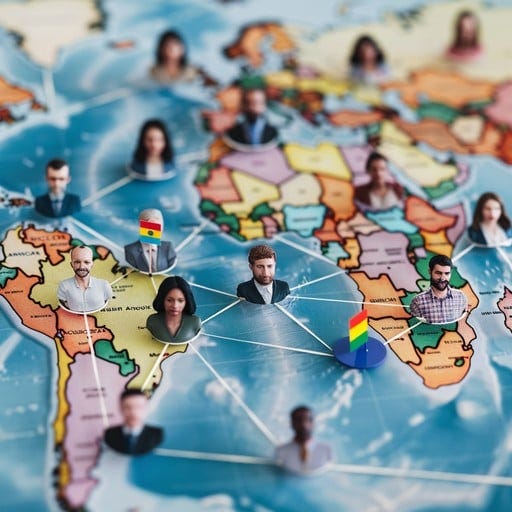
So, why is this happening, and why target these pillars?
Let's start with the obvious culprits: cultural shifts toward individualism and consumerism, amplified by technology and media.
In our globalized world, urbanization pulls people from tight-knit villages into anonymous cities, where economic pressures demand dual incomes and smaller families.
High living costs and the gig economy leave little room for extended family gatherings or community traditions.
Academia and pop culture push a narrative of self-fulfilment over collective good, turning values like humility and sacrifice into quaint anachronisms.
Social media, that great equalizer (or divider) bombards us with superficial ideals, prioritizing likes over legacy.
But let's break it down by value, explaining their importance and the attacks they face.
Meritocracy, for instance, is crucial because it rewards effort and talent, fuelling progress and equality of opportunity. Yet it's under attack from policies favouring equity over equality, where outcomes are engineered rather than earned. This is often driven by government corruption or elite favouritism that protects the powerful. Personal responsibility builds character and self-reliance, but it's eroded by welfare systems that encourage dependency, or cultural narratives blaming society for individual failings, often amplified by a focus on money and power that shifts accountability to the state.
Limited government is essential for preventing overreach and preserving freedoms, rooted in ideas like natural rights and republicanism. However, it's assaulted by expanding bureaucracies, surveillance, and regulations that prioritize control over liberty, fuelled by corruption where politicians amass power for personal gain.
The strong nuclear family provides emotional stability and transmits values across generations, but it's undermined by rising divorce rates, economic pressures, and media portraying it as oppressive. These attacks are often linked to neoliberal policies that commodify family life or social conservatism's rigid responses.
Faith and religion offer moral guidance and community, countering isolation, but they're targeted by secularism, atheism in media, and laws restricting expression, sometimes under the guise of progress but driven by those seeking to erode spiritual authority.
Patriotism cultivates national unity and pride, vital for collective defence and identity, yet it's labelled as nationalism or xenophobia in globalist eras, attacked by those profiting from division or weak leadership.
Personal freedoms are the bedrock of innovation and self-expression, but they're chipped away by censorship, cancel culture, and overregulation, often justified as protecting against "hate" but serving power consolidation.
Finally, respect for authority maintains law and order, but it's eroded by scandals, media bias, and anti-establishment movements, exacerbated by corruption that breeds cynicism. Here we would of course argue that the quality of our leaders has dropped dramatically, making it even more difficult to practically respect authority.
Is this accidental? Absolutely not. It is clearly engineered, orchestrated and not a random event. Just as AI algorithms curate our feeds to keep us hooked, broader societal forces, think corporate interests and political agendas, promote hedonism to fuel consumption.
Why nurture strong families when isolated consumers buy more? This mirrors historical patterns: during the Industrial Revolution, factory owners disrupted rural traditions to create a compliant workforce, much like today's tech giants erode community ties for data profits.
Political Polarization and the "Culture Wars"
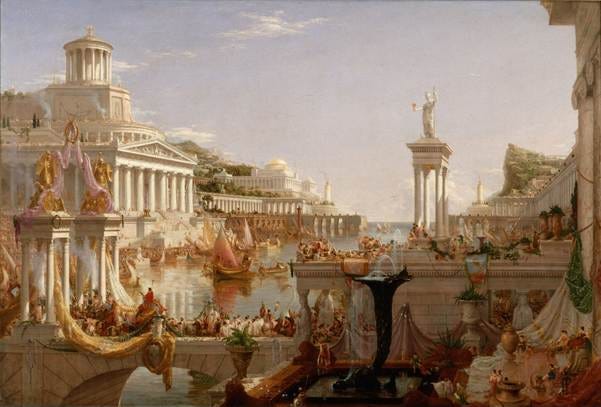
Now, let's turn to the political arena, where the battle rages fiercest. Progressive ideologies challenge these norms, framing them as oppressive relics. Of course, this has nothing to do with ‘rights’. The question is, are we trading depth for diversity without considering the long-term costs?
History offers stark warnings here. Consider ancient Rome: as the empire expanded, traditional values of piety, family honour (the mos maiorum), and civic duty gave way to hedonism, corruption, and individualism. Emperors like Nero embodied this decay, leading to societal fragmentation and eventual collapse.
Similarly, China's Cultural Revolution in the 1960s targeted Confucian traditions (family loyalty, respect for elders) to impose a new ideological order, resulting in chaos and loss of cultural identity.
Then we have the French Revolution. Edmund Burke dared to compare the assault on traditional authority and values as an attack on human imperfection, leading to terror and instability.
More recently, the Cold War. The narratives of absorption eroded family and faith mostly in minority communities. The result was the construction of myths that prioritized economic integration over cultural heritage.
Today, in America, observers note a decline in family, God, and patriotism, attributing it to generational shifts and cultural backlash.
A Double-Edged Sword: Globalization and External Pressures
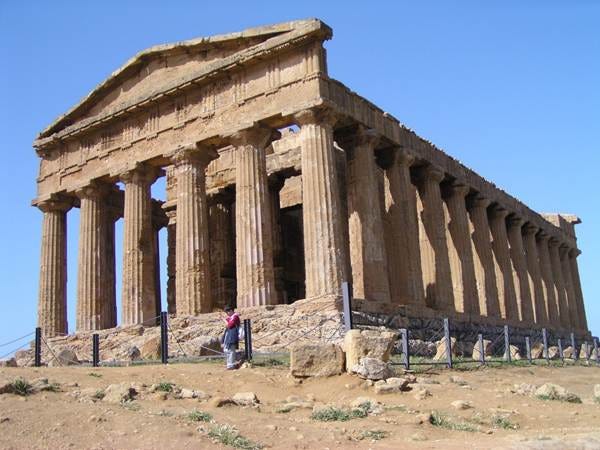
Today, globalization adds another layer to all of this mess. Globalization can only happen if you blend cultures in ways that dilute traditions.
Migration brings hybrid values, disrupting pure heritage. Western policies on immigration and climate often appear to abandon shared values, making societies feel ideologically adrift. In conflicts, traditions become deliberate targets to erase identities. We can see this all over the place in Europe. In just the past 7 years, I cannot recognize Ireland anymore.
Speculating on Deeper Reasons (Power, Control, and the Unknown)
But what if there's more?
Speculating here, as I often do in my explorations of AI and history, perhaps this "attack" is a tool for control. Elites might erode meritocracy and responsibility to consolidate power, rewriting narratives to suit agendas, just as ancient pharaohs manipulated myths for legitimacy.
Or how about the AI's role? How could the algorithms shape our realities? They could amplify anti-traditional content to keep us divided and dependent.
If we look from a different angle, demographic shifts and fertility declines in the West might stem from valuing career over family. That’s of course a self-inflicted wound, that history warns against (think of the declining birth-rates in late Roman society).
In a more optimistic speculation, could this tension represent societal evolution? Societies do adapt and it is evident that the youth is rediscovering traditions as an antidote to modern emptiness. Yes, this is happening: new generations are returning to church and religion to find meaning in an increasingly materialistic and narcissistic world.
A Call to Reclaim and Evolve
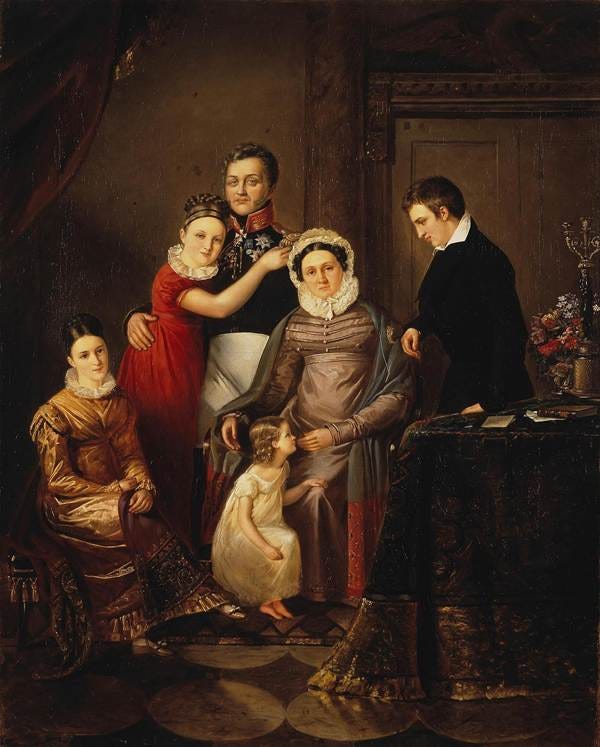
In the end, dear reader, the "assault" on these traditional values isn't new; it's a recurring theme in humanity's story, from Athens' philosophical debates to the Enlightenment's upheavals.
What feels like destruction to some is liberation to others, and tradition itself can be flawed or romanticized. But from my vantage point, rooted in ancient wisdom and modern tech, we must adopt critical thinking to navigate this. Teach your children history's lessons, build communities offline, and question the narratives fed to us. Change is possible, let's demand it, one honest conversation at a time.

